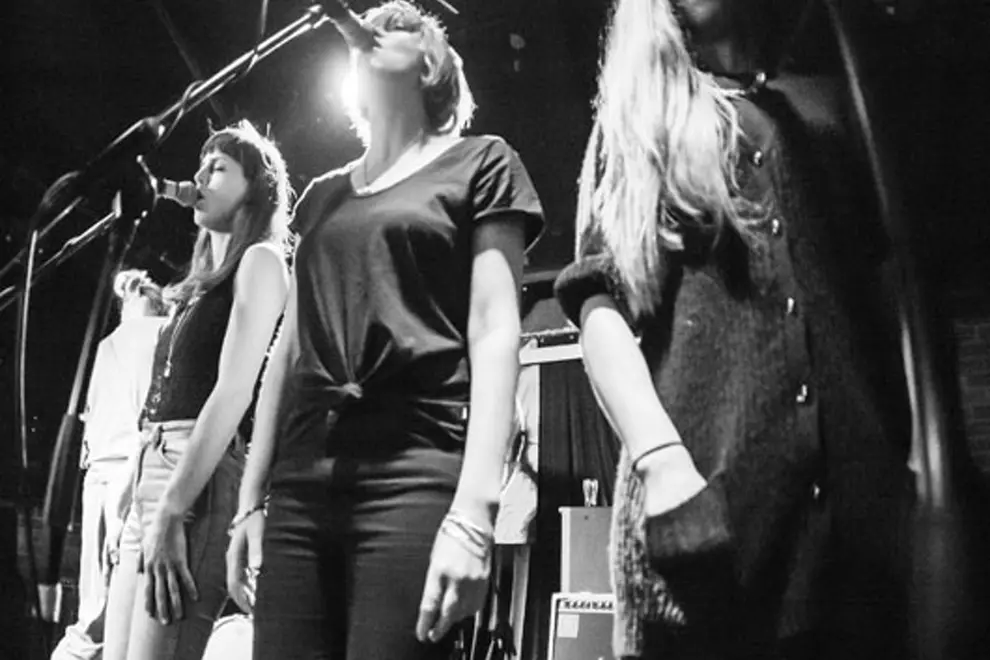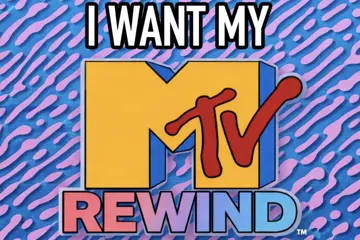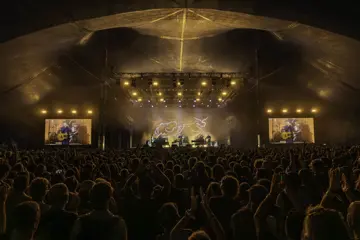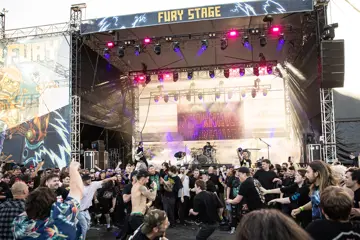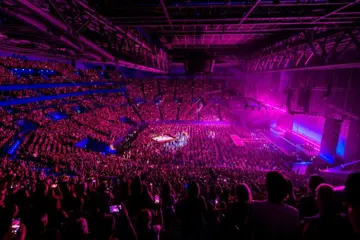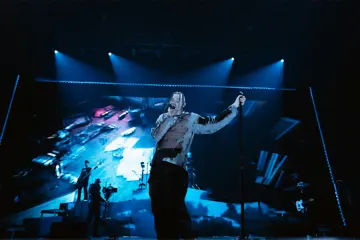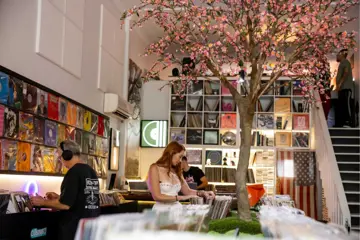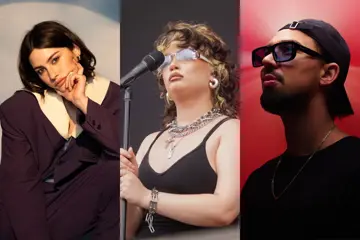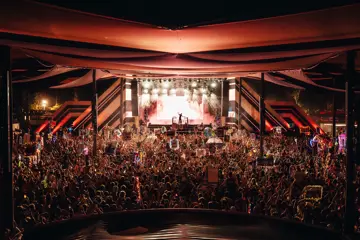On June 10, 2010 iconic Melbourne live music venue The Tote opened its doors again for lucky bands and ravenous punters, having lain quiet and dormant for some five months following its abrupt closure earlier that year. The previous January former director of The Tote Bruce Milne — the scene stalwart responsible for founding seminal record store/label Au Go Go Records in the late-‘70s — had lost his fight with Liquor Licensing Victoria over the contentious decision to deem suburban live music venues as “high risk” establishments, on a par with beer barns and inner-city nightclubs. This policy required live music venues to frivolously waste money on unnecessary security — unnecessary given that there had historically been no proven nexus between live music and alcohol-related violence — and these additional costs and expenses proved fatal for a business that had been solvent but far from raking in vast amounts of profit.
The Tote had for decades been at the vanguard of Melbourne’s world class music scene — providing a stage for many of the city’s finest outfits to play some of their earliest shows, as well as the bigger names who darkened the door on a regular basis — and the outpouring of emotion when Milne announced the end of days for the venue was staggering. Thousands of people filled the streets around the Collingwood landmark in a peaceful protest which would prove to be the precursor to the SLAM movement (the awkwardly-acronymed Save Live Australia’s Music) and ultimately see the State Government sign the Live Music Accord and in the process begin to recognise live music’s contribution to both the city’s culture and its economy. Seeing hordes of punters galvanise against the man to fight for the music scene that they so passionately believed in was super-inspiring, a war that’s still raging to this day albeit in far less perilous circumstances.
"I was right in the middle of that little maelstrom. It was an incredible outpouring of emotion, but it wasn’t all about The Tote."
Yet despite The Tote’s prominent role in this high-profile brouhaha it had lost its own battle, becoming a martyr for the cause and shutting its doors following one last massive Monday night hurrah featuring an incredible array of local rock’n’roll talent (see Persecution Blues — the documentary covering The Tote’s closure — for the last song ever played in that era, The Drones covering God’s classic My Pal, complete with God frontman Joel “RockNRoll” Silbersher on vocals; feasibly the finest way that anything has been farewelled ever). But the Rock Gods were smiling, and a few months later it was announced that a consortium called Seventh Tipple was taking over The Tote’s lease and that it was soon going to be back to business as usual — they ripped up the notoriously sticky carpets and did some structural renovations, but rehired as many of the old staff as possible and did their utmost to rekindle the old Tote vibe.
Five years down the track and The Tote is still going from strength to strength, hosting more bands than ever across its three stages and even receiving another well-deserved makeover to augment its traditional “boozed up lounge room feel” (as Link Meanie so succinctly described it in the aforementioned doco). As anyone who’s ever spent even a modicum of time in the grungy old building will attest, it’s the pervading sense of counter-culture community which makes the place so special, and the reason why so it’s important that it’s still trading under its former auspices: another venue could have opened in the vicinity and catered to the same bands and patrons, but it could never have replaced The Tote and all that it stands for.
Don't miss a beat with our FREE daily newsletter
“It’s been hard but very rewarding,” explains The Tote’s co-licensee Jon Perring, part of the Seventh Tipple group which reignited the venue. “It’s been pretty hard to keep the doors open — it really did require a whole rebuild to get it going. It’s not been easy, put it that way.

Dick Diver at The Tote, photo by Anna Madden
“The building’s been pretty challenging in many ways. Everyone’s still keen to play here which is fantastic, but it’s not the best business environment out there either so it’s tough in that sense too. The economy’s not great at the moment and going out is expensive, so as a business environment [live music] is tough at the minute. It’s not impossible though.”
Perring had no prior business relationship with the venue before stepping in to save it, although he had been the public face of the Fair Go 4 Live Music group who played an important role in the government fracas about the licensing regulations.
“Obviously I’d seen gigs there from time to time and knew various people who had worked there like Bruce [Milne] and James [Milne] and known lots of people who’d played there, so in that sense I was pretty close — I wouldn’t say I lived in the front bar like some though,” he laughs. “But I was right in the middle of all [the events which transpired around the closure in 2010], involved in the negotiations with the government and the Live Music Accord and all of that — I was right in the middle of that little maelstrom. It was an incredible outpouring of emotion, but it wasn’t all about The Tote — I guess The Tote was the high-profile example. But bouzouki players were losing their gigs and silly things like that. The Brunswick Blues Shooters lost their gig at The Railway – it was just happening all over town. The Tote was just the straw that broke the camel’s back. The whole music scene is quite a fragile ecosystem in many ways, and it’s not capable of taking king hits.”
"The whole music scene is quite a fragile ecosystem in many ways, and it’s not capable of taking king hits."
Fortunately Perring and his many cohorts agitated until the government re-addressed the whole issue of live venues being deemed “high risk”, a massive victory not just for The Tote but for the Melbourne music scene in general.
“We talked them into rethinking how licensing conduct their risk matrix, and now it involves a whole lot of other things — most importantly live music is no longer a factor that determines whether a liquor license is high risk or not,” he explains. “The previous policy was ridiculous and there had been no research behind it — it was a unilateral decision made by an individual at licensing, the then Liquor Licensing Commissioner. When it was pointed out that there was no evidence base for it, eventually the policy had to change. It wasn’t logical.”
Yet the novelty of this famous victory wore off long ago for those at the coalface of keeping The Tote a functioning entity. The venue’s band booker Richard Stanley — himself an alumni of numerous great rock bands including The Onyas, Ooga Boogas and Drug Sweat — is one who prefers to look to the future rather than the past.
“It’s five years since we saved The Tote which is cool — it’s a big deal — but mainly we want to keep looking forward,” he explains. “I was back living in Brisbane at the time, but everyone knows that whole story — the last thing I want to do is keep banging on about that old shit. I thought it was really cool when we got rid of the front door that said ‘Never Say Die’ — you can only play the victim for so long, and I just didn’t want to keep trading on that. Everyone at the pub was thoroughly sick and tired of hearing about it. A pub’s really only as good as what it’s got coming up — what’s it got on that week and what it’s got coming next — so to me it’s time to stop trading on former glories and time to start ruling again. We want to get some good internationals coming through, but the place’s bread and butter has always been good local bands and if you can just get a good bunch of interstate bands and the odd international coming through that’s ideal for us.”
Stanley naturally has a long personal history with The Tote — first as a punter and eventually playing countless nights there with a string of bands — and it houses a myriad of messy memories from before it became his full-time day gig.
“I first went there in ’91 — I think was an afternoon show out the back and I saw The Meanies and Spiderbait and the Guttersnipes, which was I think pretty par for the course for The Tote in ’91,” he chuckles. “I started playing there myself in ’95 and a few bands I’ve played in over the years have played there. I always like setting up at The Tote — I’ve never had a bad night there really playing. It’s always been good.
“I booked for a little while in 2000 when Luke Roberts needed a month off, and then I stepped in for Janelle Johnstone and Amanda Roff in 2007 when they were away for a month. But I’ve just been doing booking since December, 2013 — Nicci Reid showed me the ropes for three or four months, and then I started full-time on my own just over a year ago. I love it — I couldn’t ask for a better job to be perfectly honest.”

Harmony at The Tote, photo by David Harris
Both Stanley and Perring are of the opinion that it’s The Tote’s ongoing ability to provide a platform for bands cutting their teeth in the early stages of their career arc that remains one of its main strengths.
“You can’t practice as a musician unless you’ve got somewhere to play — it’s fundamental,” Perring reflects. “Music happens not just in the band room these days — it’s happening all throughout the venue, all over the place, at different times simultaneously. It’s a really active venue, and that’s one of the things that’s really good about it; we’ve managed to get it back to that point where there gigs happening in the front bar, they’re happening out back, they’re happening upstairs — it’s wherever, and it’s all going on all the time. There’s different contexts too: you’ll have high-production gigs happening out the back, but in the front bar you can pretty much stand next to the guitar player while he’s cranking it out.”
“Music happens not just in the band room these days — it’s happening all throughout the venue."
“There are a lot of smaller venues around where bands can cut their teeth, but we’re definitely giving a lot of bands early gigs in their career — a lot of them play upstairs, or mid-week in the other rooms,” Stanley concurs. “That’s what I think is a really important role of The Tote — giving shows to young bands who haven’t yet played very often — especially the good ones. It’s great having the smaller DIY space upstairs so bands can play with the pressure of trying to fill a 310 capacity room and pay for a mixer and that sort of stuff — they can run the door and the PA themselves and get 30 people and that’s a good night.”
Importantly — despite the pub’s long-held reputation as a rock’n’roll haunt — The Tote provides a platform for bands from many genres to showcase their wares (although admittedly most of these genres involve guitars and loud volume).
“It often does that association of being mainly a rock venue — and it is, we’ve done a lot of rock over the years,” Stanley concedes. “But there’s punk and hardcore and metal and stoner and doom bands playing here all the time, and I reckon it’s important to have a wide variety of stuff coming through. I don’t think there’s anyone who works at the bar who just wants rock, rock, rock all the time — I certainly don’t. You’ve got to have variety. Everyone gets a turn basically.”
Even more excitingly for bands who get the chance to play at The Tote down the track, they’ve recently invested money into improving the existing infrastructure.
“It’s mainly just tweaking at the moment,” Perring tells. “We’ve slowly been getting the PA in the front bat better and better — it’s now got subs and it sounds a lot better than it has in the past. We’ve now got three good PAs installed around the building which is great.”
“When the pub shut down for six months [in 2010], just before it opened they did a whole bunch of renovations then, but just in the last 18 months we’ve done a few new things as well,” Stanley enthuses. “We’ve moved around the front bar and put the pool table around the side, and that’s heaps better. We’ve got a new beer garden now called Bartertown — there’s two beer gardens now, and people from front bar can smoke out in the beer garden until 11 o’clock without having to pay to see the band. And we’ve now got an in-house backline provided by VASE amps from Brisbane which is just there all and time and free for all the bands to use — upstairs and downstairs. There’s speaker boxes and a base amp, and hopefully soon a full drum-kit as well. It’s great for the bands — it’s how they do it in some places in Europe and Japan and China, so it’s cool to be able to do that here.
"I don’t think there’s anyone who works at the bar who just wants rock, rock, rock all the time."
“And we’ve got Craig [Dermody] from Scott & Charlene’s Wedding doing a thing called Comfort Steamers where on big nights he sells steamed vegetables with delicious sauces out in Bartertown. We have residencies in the front bar on Saturdays and Sundays, which has been going pretty good. There’s so much going on all the time, it’s awesome.”
Ultimately The Tote’s major mission statement is, and always as been, about providing a place for Melbourne’s unparalleled live rock scene to survive and flourish — at the end of the day it’s all about the music.
“The Melbourne scene is really good at the moment,” Stanley reckons. “There’s really cool newish bands coming through all the time in every genre. I reckon it’s great right now, and there’s still a lot of bands dying to play here. We can’t fit them all in.”
“One of the things I think is good about The Tote is probably just its general activity level,” Perring reflects. “When you have a look at a lot of the other music venues around, The Tote is 123 million percent about live music — that’s what it is. You can’t look at it any other way. You can’t go in there and buy dinner, it’s not a gastro pub and a venue — it’s only one thing, it’s a venue — and I think that’s what sets it apart from a lot of the other venues around town. It’s not trying to be several things at once, it’s just striving to be one thing; it lives and breathes live music. All of the bar staff and people who work there play in bands — it’s always been that way and I think it always will. The culture is really thick there about live music and I think that’s the difference with The Tote.”

